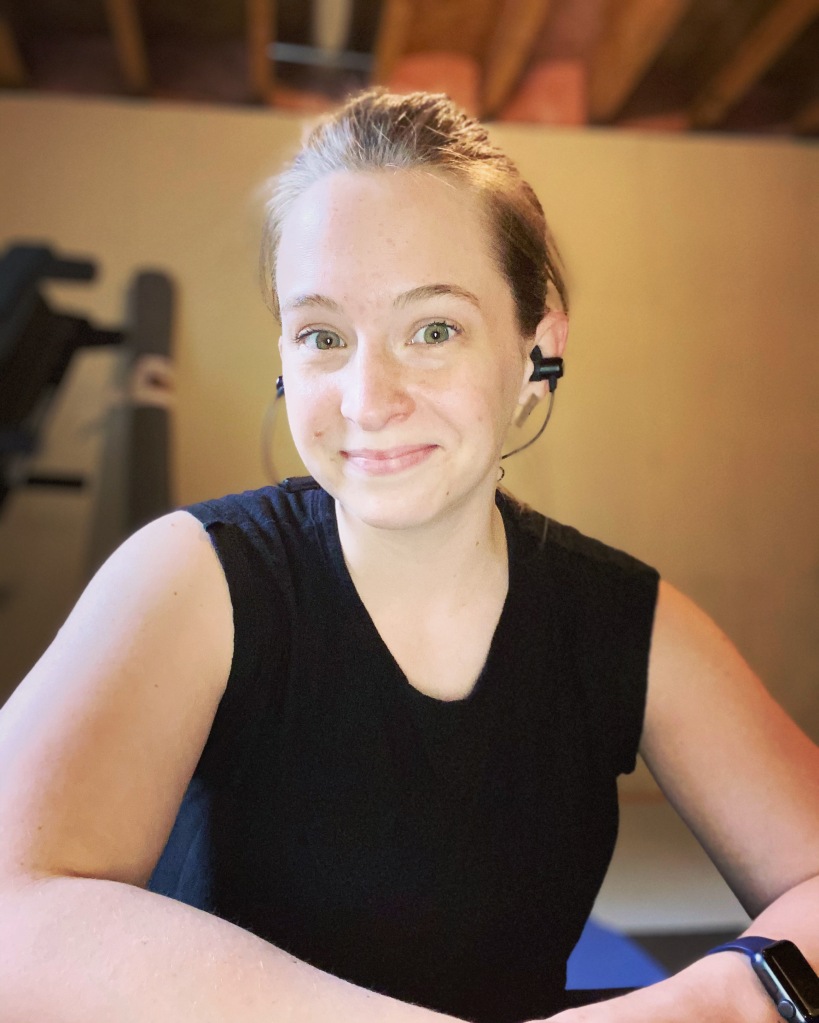Plus 5 Tips to Train Smarter!
Jamie Staley, NASM-CPT, Pn1

Do you feel like there is so much conflicting information about exercise? Does it seem like everyone has a different way of doing things and you don’t know which one is right?
Fitness can be confusing, but I’m hoping to give you some clarity today.
But first, I need to say something super important. A disclaimer, if you will.
This post is not meant to bring shame to ANYONE. I put common in the title for a reason. Meaning, many people believe these things to be true.
I have even believed some of these things before I learned differently.
I blame misleading figures in fitness before I ever blame an individual. Misconceptions are out there because someone started them. And I’m here to end them so let’s get started.
#1: Being sore means it was a good workout.

Somewhere along the way, we have tied sore muscles to effort. Let’s untie that real quick. Most likely you feel this way because when you first start a program or there are long gaps between your workouts, everything feels sore. So it’s hard to tell what your fitness level is and what is an appropriate amount of exercise.
Also, when starting a new exercise program, most people go full speed ahead right out of the gate. Plus, the feeling of being sore brings a sense of satisfaction to some that they really worked hard and that is how they gauge a “good” or “effective” workout.
Yes, some muscle soreness is common and to be expected, especially in the beginning. However, excess soreness is a sign from your body that you did too much, too fast.
Tip: If you are new to any type of strength training, an individualized plan from a trainer written for YOUR goals and level of fitness will propel you into training with intention, purpose, and will maximize your time in the gym with reduced risk of injury and excess muscle soreness.
#2: If you want long, lean muscles, you need to use lighter weights. Heavy weights will give you bulky muscles.

There is something I read about muscles (I can’t remember where) that was super helpful to me: “muscles either grow or they shrink.” They do not “tone.” So don’t be afraid to lift heavy weights. “Heavy” is relative term and it’s ok if your “heavy” is different from someone else’s.
In terms of “getting bulky” adding muscle mass requires a specific type of training (hypertrophy) and it requires a calorie surplus because you are adding muscle tissue. The people you see that have huge muscles have worked extremely hard for a long time to achieve that physique.
Tip: if you are new to strength training, select a weight that you can do about 12-15 reps for 2 or 3 sets. The last three or so reps of each set should feel hard, but you should still be able to use proper form. If you can’t use proper form, lower the weight. If the last few reps feel like the first few reps, increase the weight slightly.
#3: It doesn’t matter what you eat as long as you do enough cardio to make up for it.

This misconception is rooted in a partial truth of energy balance. (Energy balance meaning you lose weight by burning more calories than you eat, you maintain weight if those two things are the same, and you gain weight if you eat more calories than you burn).
The first thing wrong with this statement is that most people grossly overestimate how many calories they burn during exercise and grossly underestimate how many calories they are actually eating. Even if you are counting calories and using a fitness tracker, there are still some issues with these methods.
Depending on how much you eat, it is virtually impossible to do enough exercise to “burn it off.”
The second thing wrong with this statement is that it reinforces the idea that you have to punish yourself for eating. This can be very damaging to your relationship with food, your body image, and can actually make losing weight over the long term even harder.
Tip: Don’t add calories into your day to offset exercise. Most calorie counters have your activity level (including exercise) already calculated. View food as fuel for your exercise, not something you have to “earn” or “work off.”
#4: A lower number on the scale is the only way to tell if you are making progress.

Ah the bathroom scale. We love to hate it don’t we? It’s an unpredictable machine and a cruel mistress.
Scale weight will fluctuate based on many things: increased carb or sodium intake, time of day, timing of bowel movements (sorry it’s true), stress, eating later the night before, and (for ladies) the time of the month.
The scale going up doesn’t mean you have gained fat and the scale going down doesn’t mean you have lost fat.
Other ways to measure progress include: how your clothes fit, more energy, better sleep, gaining strength, gaining stamina or endurance, better form, etc.
Tip: the scale is just data, but for some people it can make or break healthy habits. If the scale messes with you too much, don’t weigh yourself. On the opposite end, some people find weighing themselves every day helpful because they can see the fluctuations and start to learn that weight will fluctuate. Do what’s right for you.
#5: Doing ab exercises will get rid of your belly fat.
I have an unfortunate truth to share: spot reduction is a myth. You cannot choose where you lose body fat. Cruel right? I know, I’m not happy about it either, but don’t shoot the messenger.

The order of body fat reduction is largely genetic. I’ll use myself as an example. I come from a long line of women that carry our weight in our lower half (hips and legs). So when I gain, that’s the first place it goes and the last place it leaves.
You might be the same or you might gain in your abdomen, face, or upper body first and that’s where it hangs on the longest.
Tip: body fat reduction is mostly determined by nutrition, not exercise. Hence, “abs are made in the kitchen.” Having a strong core (which includes the abs) is important, but don’t do ab exercises expecting to reveal a six-pack. Having visible muscles is also a mix of body fat reduction and increase in muscle size.
Next Steps

If tackling a new exercise regime on your own feels too intimidating and confusing, I can help! I am a Certified Personal Trainer through the National Academy of Sports Medicine and have experience with a wide array of clients.
I will coach you through an individualized plan to meet your goals and help you gain strength and confidence, while cutting through the confusion. I’ll give you the accountability, real information, motivation, and guidance to make lasting change.
In-person or online coaching available! Send me an email at jsfncoaching@gmail.com and let’s chat about your goals!
Thanks Jamie! I often find weighing myself depressing. I vow to continue on my weight loss/fitness journey without the daily weigh in. I will trust the process and gauge my success by how my clothes fit and (more importantly) how I’m feeling physically, mentally, and emotionally.
LikeLike